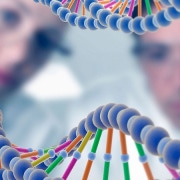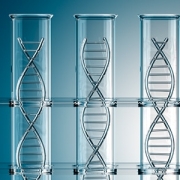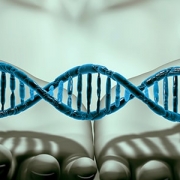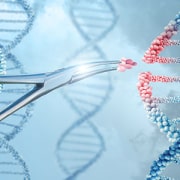World-first study shows WGS improves diagnostic journey
Impressive results make the case for the adoption of whole genome sequencing as “the genetic test of choice for rare disease patients”
A world-first scientific study, published today in the New England Journal of Medicine, has demonstrated that whole genome sequencing (WGS) can uncover new diagnoses for people across the broadest range of rare diseases investigated to date, and could deliver significant benefits across the NHS.
The study
The pilot study of rare undiagnosed diseases analysed the genomes of 4,660 people from 2,183 families – all of whom were early participants in the 100,000 Genomes Project. The ground-breaking project, led by Genomics England and NHS England, was established in 2013 to sequence 100,000 whole genomes from NHS patients and their families.
The study, led by Genomics England and Queen Mary University of London, in partnership with the National Institute for Health Research BioResource, and involving HEE GEP fellows Jamie Ellingford and Jana Vandrovcova, found that using WGS led to a new diagnosis for 25% of the participants.
Of these new diagnoses, 14% were found in regions of the genome that would have been missed by other conventional testing methods, including other types of non-whole genomic tests.
The difference to patients
Many of the participants had endured years of investigations without getting any answers. By having their whole genome sequenced, diagnoses were uncovered that would not have previously been detectable. The pilot study demonstrates that WGS can effectively secure a diagnosis for patients, save the NHS vital resources and pave the way for other interventions.
Participants who received a diagnosis through the pilot include a 10-year-old girl whose previous seven-year search for a diagnosis involved 307 hospital visits including multiple intensive care admissions at a cost of £356,571. Genomic diagnosis enabled the girl to receive a curative bone marrow transplant (at a cost of £70,000). In addition, predictive testing of her siblings showed no further family members were at risk.
Another patient, a man in his 60s, had endured years of treatment for a serious kidney disease, including two kidney transplants. Already knowing his daughter had inherited the same condition, a genomic diagnosis made by looking at the whole genome for the man and his daughter enabled his 15-year-old granddaughter to be tested. This revealed she had not inherited the disease and could cease regular costly check-ups.
Another case concerned a baby boy who became severely ill immediately after birth and sadly died at four months with no diagnosis. Analysis of the baby’s whole genome uncovered a severe metabolic disorder owing to an inability to take vitamin B12 inside cells, explaining his illness. This enabled a predictive test to be offered to his younger brother within one week of his birth. He was diagnosed with the same disorder but was able to be treated with weekly vitamin B12 injections to prevent progression of the illness.
The wider impact
The study is the first to analyse the diagnostic and clinical impact of WGS for a broad range of rare diseases within a national healthcare system. The findings lend credible support to the widespread adoption of WGS in health systems worldwide.
The high performance of WGS for specific conditions observed in the pilot study – including intellectual disability, vision and hearing disorders of 40%-55% diagnostic yield – has underpinned the case for the inclusion of WGS to diagnose specific rare diseases as part of the new NHS National Genomic Test Directory.
Co-lead author of the paper, Queen Mary University of London’s Professor Damian Smedley said: “This is the first time that whole genome sequencing has been directly embedded into rare disease diagnostics in a healthcare system like the NHS and applied at scale across the full breadth of rare disease.
“A large proportion of the diagnoses we discovered were found outside the coding region and would not have been detected by existing approaches. This study makes the case for healthcare systems worldwide to adopt whole genome sequencing as the genetic test of choice for rare disease patients.”
Learn more about WGS
Are you keen to learn more about WGS and its applications in healthcare? Try our free and flexible online course, Whole Genome Sequencing: Decoding the Language of Life and Health, which is available to join until 19 December.
–









